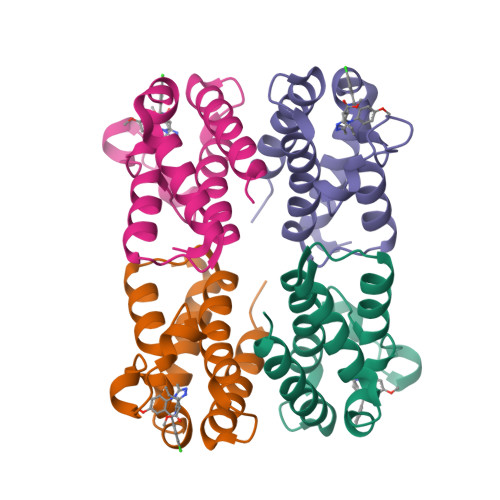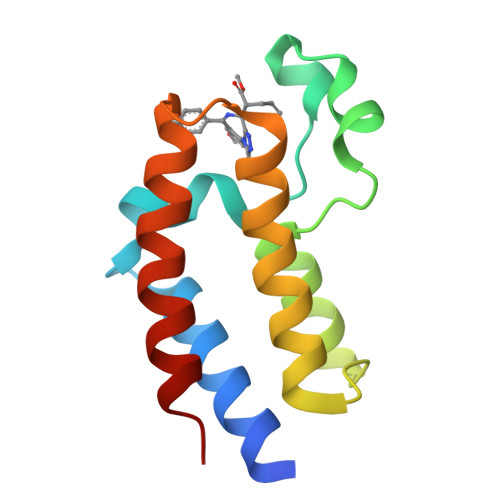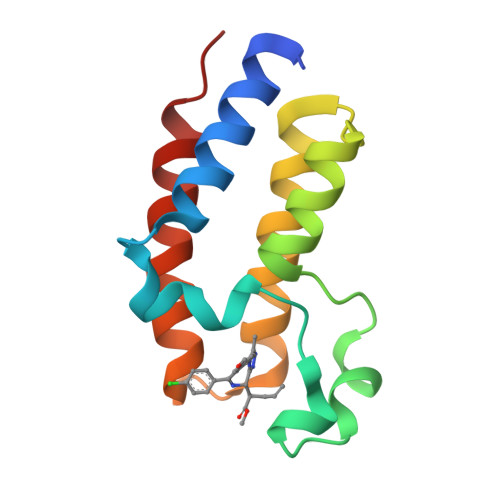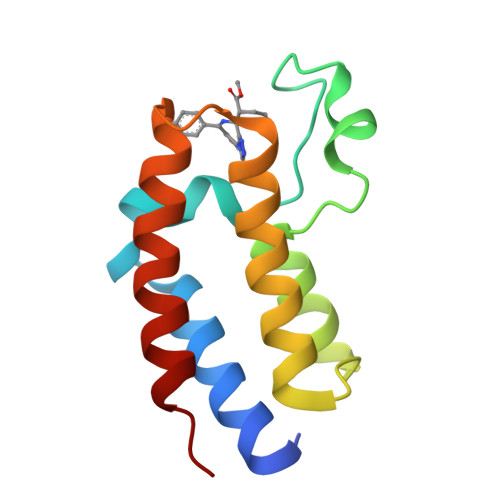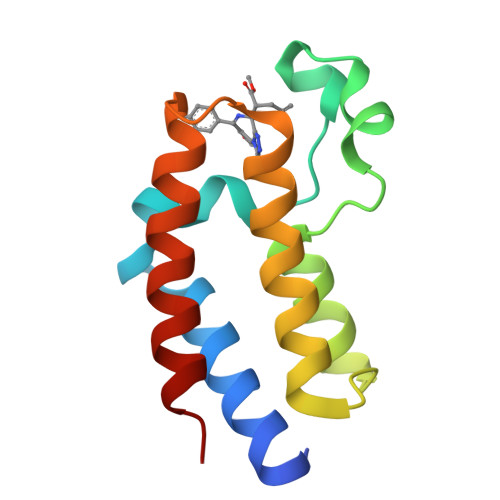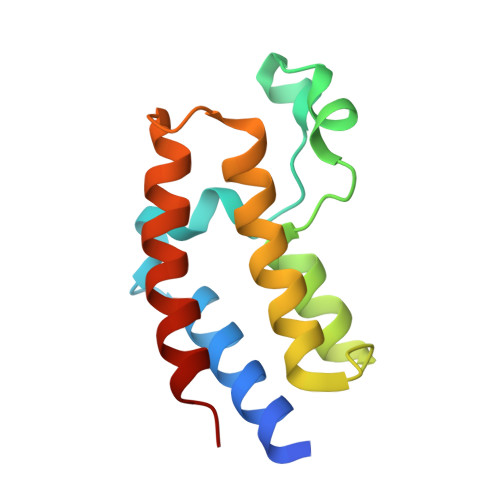Optimization of a "bump-and-hole" approach to allele-selective BET bromodomain inhibition.
Runcie, A.C., Zengerle, M., Chan, K.H., Testa, A., van Beurden, L., Baud, M.G.J., Epemolu, O., Ellis, L.C.J., Read, K.D., Coulthard, V., Brien, A., Ciulli, A.(2018) Chem Sci 9: 2452-2468
- PubMed: 29732121
- DOI: https://doi.org/10.1039/c7sc02536j
- Primary Citation of Related Structures:
5O38, 5O39, 5O3A, 5O3B, 5O3C, 5O3D, 5O3E, 5O3F, 5O3G, 5O3H, 5O3I - PubMed Abstract:
Allele-specific chemical genetics enables selective inhibition within families of highly-conserved proteins. The four BET (bromodomain & extra-terminal domain) proteins - BRD2, BRD3, BRD4 and BRDT bind acetylated chromatin via their bromodomains and regulate processes such as cell proliferation and inflammation. BET bromodomains are of particular interest, as they are attractive therapeutic targets but existing inhibitors are pan-selective. We previously established a bump-&-hole system for the BET bromodomains, pairing a leucine/alanine mutation with an ethyl-derived analogue of an established benzodiazepine scaffold. Here we optimize upon this system with the introduction of a more conservative and less disruptive leucine/valine mutation. Extensive structure-activity-relationships of diverse benzodiazepine analogues guided the development of potent, mutant-selective inhibitors with desirable physiochemical properties. The active enantiomer of our best compound - 9-ME-1 - shows ∼200 nM potency, >100-fold selectivity for the L/V mutant over wild-type and excellent DMPK properties. Through a variety of in vitro and cellular assays we validate the capabilities of our optimized system, and then utilize it to compare the relative importance of the first and second bromodomains to chromatin binding. These experiments confirm the primacy of the first bromodomain in all BET proteins, but also significant variation in the importance of the second bromodomain. We also show that, despite having a minor role in chromatin recognition, BRD4 BD2 is still essential for gene expression, likely through the recruitment of non-histone proteins. The disclosed inhibitor:mutant pair provides a powerful tool for future cellular and in vivo target validation studies.
Organizational Affiliation:
Division of Biological Chemistry and Drug Discovery , School of Life Sciences , University of Dundee , Dundee , Scotland , UK . Email: a.ciulli@dundee.ac.uk.








